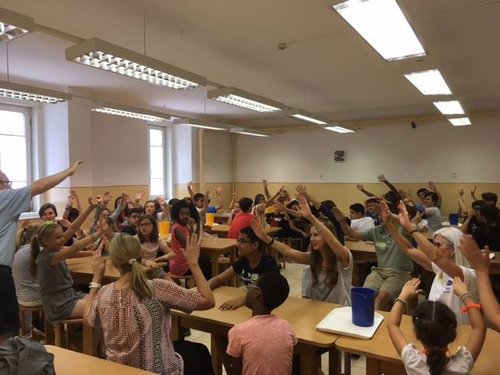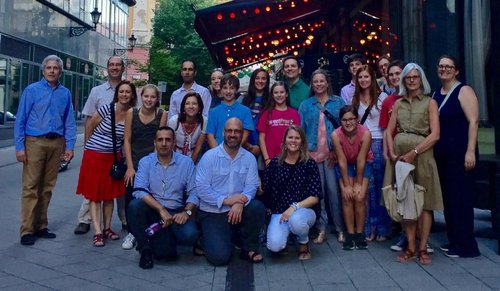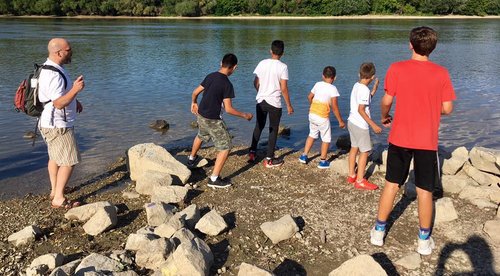A local congregation again partnered with the RCH’s Refugee Integration non-profit to put on a superb English camp at the end of July. The camp brought together a diverse group of children and adults and was a life-changing experience for all of them.
Each year St. Columba’s, a joint congregation of the RCH and the Church of Scotland, and Kalunba Social Services Nonprofit Ltd., the RCH’s implementing partner in its Unit for Refugee Integration, collaborate to run an English day camp for children in the city. This years camp took place the first week of July and hosted around forty children and fifteen staff and adult helpers.

The kids at St. Columba’s English camp came from all walks of life – some were native Hungarian, others immigrants; some were refugees, while others were Roma – to learn English and build community together. The week was filled with delicious food, plenty of songs, lots of crafts, and of course some language practice! A working knowledge of English was not needed for kids to come and enjoy the camp; even if they didn’t speak English at the beginning, they picked up on words during the week and were happily chatting away and practicing their new language skills by the end of camp. Over forty children attended this year’s camp during the first week of July and together they spoke almost ten different languages.
Staff at the camp was diverse as well – some were Hungarian while others were immigrants or visitors in Hungary, and many of them were multilingual. A group from the United States also joined the camp this year as helpers, giving the children who attended the camp a unique opportunity to learn and practice their English skills with people from around the world.

For the second year, a group from Myers Park Presbyterian Church (USA) traveled to Budapest to volunteer at the English camp. This year over twenty volunteers came and spent their mornings at the camp and their afternoons bonding with Kalunba’s beneficiaries at English-oriented community events. One day the MPPC group joined Kalunba for a boat trip to Szentendre, another afternoon they held a joint picnic by the Danube, and other evenings the group split up and joined local families for home cooked meals and quality time.
Days at the English camp began with songs and a dramatic rendering of the Biblical story for the day, followed by vocabulary practice relating to the story. The children were then divided up into two groups to experience handcrafts and Godly play – an innovative way to engage the children in the Biblical story again. In the afternoon, kids and staff shared a meal together and then played outdoor games, like relay races and basketball, for a few hours.
At the end of each day, the group gathered again for an afternoon time of songs and then a closing conversation where each person named their favorite part of the day. This daily ritual was an important time for the children, and adults, to name the activity or person who had an impact on them that day. For many of the kids, their favorite thing was crafting, playing basketball or football, or learning some new dance moves; for others, they enjoyed watching the daily scripture story being acted out, hearing the Bible read in multiple languages, or meeting new friends.

The camp at St. Columba’s is an excellent example of the church creating God’s kingdom on Earth, here and now, for all of God’s people regardless of their social standing, faith background, nationality, or anything else that may divide us. Each year the English camp is a reminder of God’s vision for the wider-world, one that the congregation and Kalunba try to live into each and every day.
Article by Kearstin Bailey
Photos via Myers Park Presbyterian Church and Derek J Macleod